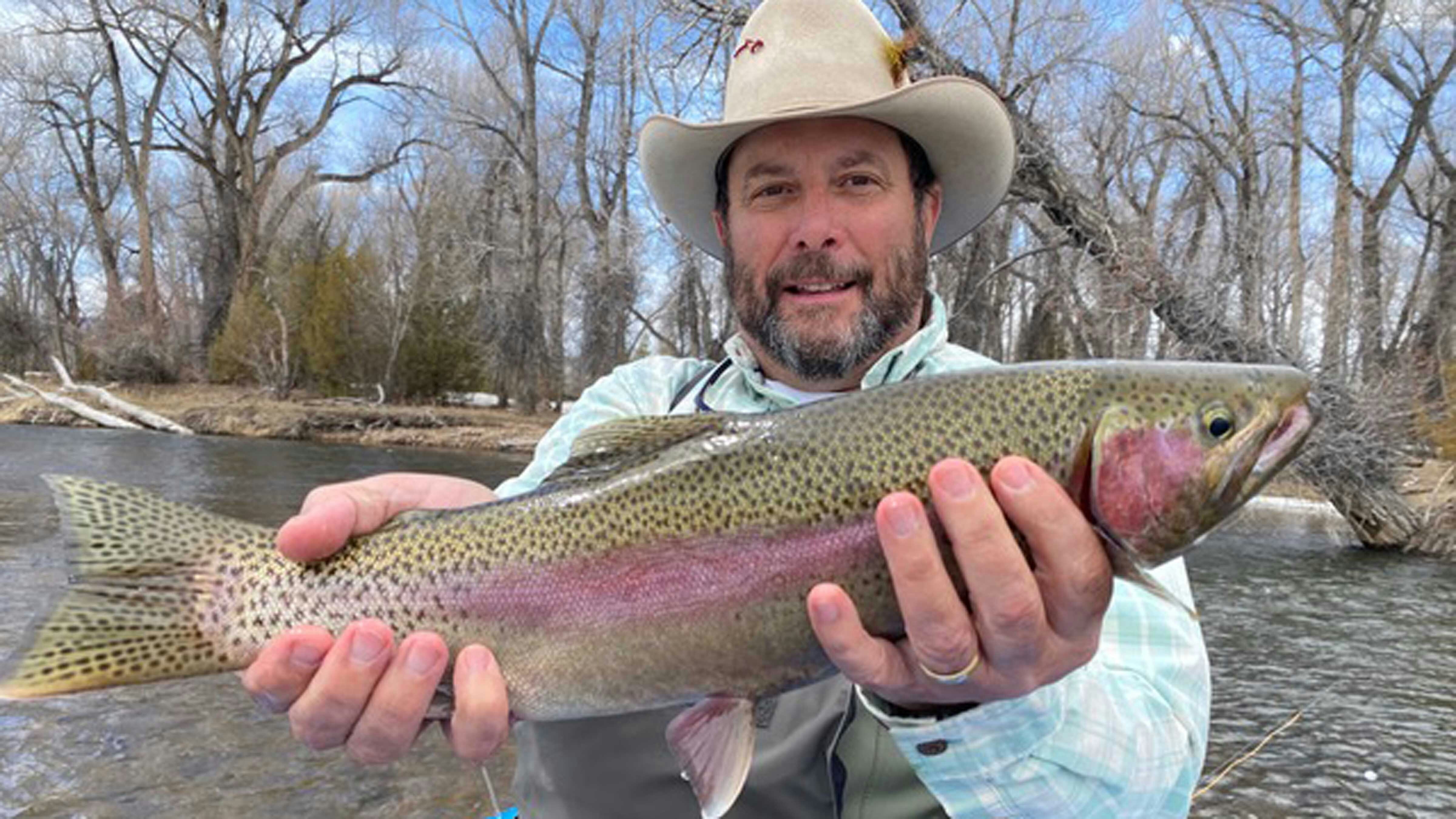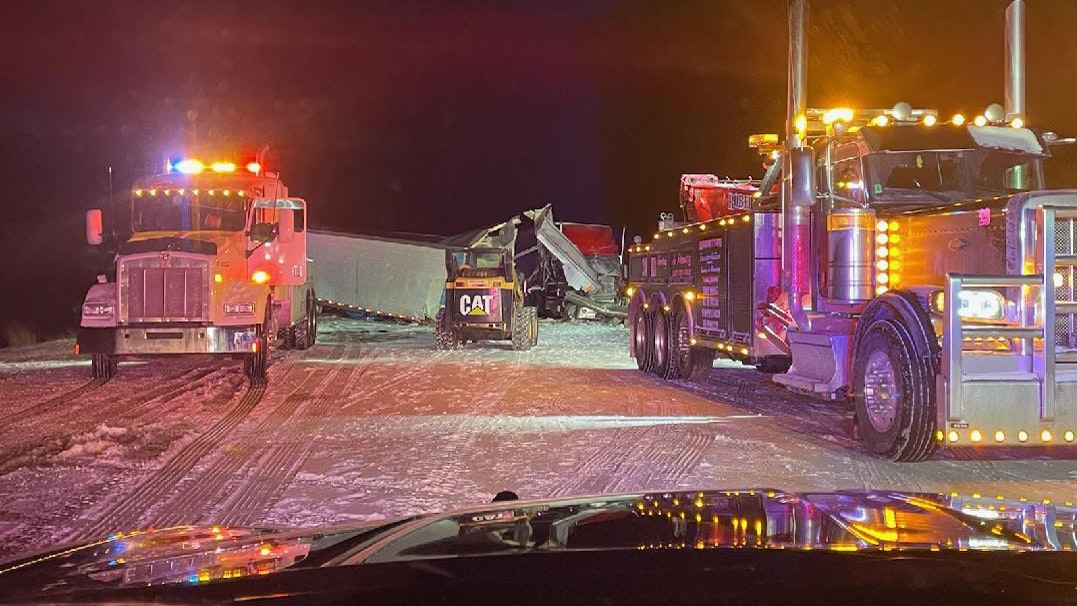Becoming Wyoming’s first female state senator was just one of the many extraordinary experiences that make Dora McGrath one of the Cowboy State’s most colorful early characters.
McGrath was a true child of the Wild West, brushing shoulders with the likes of Butch Cassidy and Chief Washakie, and narrowly missing an assassination that killed her first husband.
McGrath went on to become the first woman elected to the Wyoming Senate in 1930 and was behind the legislation that led to the construction of the first hospital for military veterans in Wyoming.
She also was one of the first women in the state to vote and played an important role in early Thermopolis town history.
Jackie Dorothy, tourism director for the Hot Springs County Travel and Tourism Board, is an expert on McGrath, who says she was a woman perpetually driven to make her community and the world around her better.
It’s also thanks to McGrath that the Hot Springs County Museum exists today, which is how Dorothy stumbled upon her life story.
More than 80 years since her death, McGrath’s contributions are still important for Wyomingites.
“We’re announcing a new generation of kids that get excited about our museum,” Dorothy said. “We have tangible evidence that she existed, that she was here. Even people may not know her name, they know what she has accomplished and what she has done.”
Who Was McGrath?
McGrath was born in Iowa in 1868, the daughter of a Civil War veteran who marched with Union Gen. William Tecumseh Sherman and Northern abolitionists.
At 16, McGrath married her first husband, James Barker, and in 1887, her family moved to Wyoming with McGrath’s newborn daughter in tow.
A terrible thunderstorm greeted the family when they arrived in Douglas, literally flooding them out of their beds, but it couldn’t stop them from setting up at the Fort Fetterman military base.
McGrath arrived right on time to help make Wyoming a state in 1890. It was 20 years before that Wyoming became the first state to grant women the right to vote to help its push for statehood.
On election morning, a man came to McGrath’s door and asked if she would like to vote, and she said she did. When arriving at the polls, McGrath was given a ticket that was already scratched and told to drop it in the ballot box.
Not knowing any better, McGrath did exactly as she was instructed.
That afternoon, another man came to her door asking if she had voted yet. McGrath told him that she had, but the man informed her that she had cast her vote incorrectly and would have to do it over again.
In turn, he took her to the polls, where another scratched ticket was given her with similar instructions from that morning.
In short, McGrath voted twice in the successful effort to help Wyoming become a state.
An Killing Changes Everything
Dora’s 17-year-old sister Minnie married Martin McGrath, an ambitious merchant who moved 200 miles north to Thermopolis in 1895 to start a new life. He went on to become one of the founding fathers of the town in its original location.
Although she didn’t move there immediately, Dora visited and was enthralled with the area around Thermopolis, where 9 miles away hot water bubbled out of the ground from its iconic hot springs.
McGrath and her husband continued living on a 5-acre homestead outside Glenrock, where they raised four children.
One day in 1899, her husband got in a terrible fistfight with a blacksmith in the middle of the street over an issue with Barker’s dog, a confrontation reported in the Natrona County Tribune.
The paper reported that Barker did not have the reputation of being a quarrelsome man, but would fight on the slightest provocation.
About 15 minutes later, Barker was standing in the back of the local post office with McGrath by his side. The two were both reading a letter, with McGrath standing behind and her hand placed on Barker’s shoulder. Suddenly, a shot rang out and through the kitchen window.
“She just narrowly missed being shot herself,” Dorothy said.
Barker fell to the ground mortally wounded, the bullet from a .45-caliber revolver passing through his arm, one lung, and lodging against his rib. He died the next morning.
The blacksmith was immediately arrested and taken into custody in Douglas.
But Dorothy said the man was well connected and advocated for by the local press “as a hardworking man of good reputation.”
He was acquitted the next May and the murder of James Barker was never officially solved.
A New Life
Although McGrath returned to Iowa for a short time after her husband was gunned down, Dorothy said Wyoming was where her heart remained and she soon moved back.
The young widow opened a boarding house in Thermopolis, but more tragedy awaited around the corner. On Christmas Day 1900, Dora’s 14-year-old daughter, Nina, and her sister Minnie both died of typhoid fever.
There was no one else to take care of her sister’s children, so Dora took over the care of her young nephews, Roy and Lester.
Two years later, Dora married her sister’s widow, McGrath, in Thermopolis.
There, she and McGrath managed a family store that quickly flourished in the upstart community. Her husband served as town mayor and on the local city council.
Despite the remote nature of Thermopolis at the time, McGrath and her husband were affluent, traveling for both business and pleasure to places like Mexico, Chicago and New York City.
Then The War
In 1910, Martin bought the family a new 40 horsepower Inter-State automobile and the McGrath car quickly became a popular sight around Thermopolis.
Dora also was likely one of the first women to drive a car in Wyoming, taking trips with the local “autoists” to Billings, Yellowstone National Park and Denver. Dorothy said it was noted on a joy ride to Billings that “they found plenty of road but not all of it in the best condition for a speedway.”
When World War I broke out, Dora’s eldest son Ralph was the first in Thermopolis to enlist, followed by his two brothers. They frequently wrote to their mother during the war, and Dora in turn visited the Wyoming “boys” in the army training camps, sending reports back that were published in the local newspaper.
“She was tirelessly fighting for them,” McGrath said.
While her sons were serving in the war in France, she received notice that one of them had been gassed in combat. She expressed a great desire to go to France and establish a convalescent home for soldiers, but was stopped by her own pregnancy at the age of 50.
The 2.5-pound baby girl, Frances Lorraine, was named in honor of France.
In 1917, Dora organized the Mother’s League, which was devoted to supporting men fighting in the war and helping the bereaved mothers who had lost sons, and after the war formed the American War Mothers with a similar purpose.
Ralph and Roy returned home, but life was forever changed for them as both suffered greatly from combat and exposure to mustard gas.
“All these young men were hurt, and her goal was to build a veterans hospital,” Dorothy said.
Time In Office
Fueled by a desire to build a veterans hospital in Thermopolis located near the healing mineral hot springs, Dora ran for the Wyoming Legislature, despite her second husband dying about 10 years before.
“She’s the head of the household with the business and now she’s going to the Senate,” Dorothy said.
With the campaign support of the American War Mothers, McGrath was elected in 1930 as the state’s first female senator. Mary Godat Bellamy was the first woman elected to the Wyoming Legislature, elected to the House of Representatives in 1910.
McGrath struggled to get her veterans hospital bill through until she removed the stipulation that it had to be built in Thermopolis. With the stipulation gone, the bill passed and the veterans hospital was ultimately built in Cheyenne in 1934.
This hospital, the Cheyenne Veterans Affairs Medical Center, still exists.
While in the Legislature, McGrath cast an important vote repealing the state’s prohibition laws in 1933, and joined the Republican Citizens Committee Against National Prohibition during the Republican National Convention in Chicago in 1932.
Wyoming and Thermopolis were still in many ways the Wild West around this time, with McGrath frequently engaging with outlaws and other questionable types at the family store, like Butch Cassidy and Tom “Peeps” O’Day.
“She was from the wild wooly days, she saw no problems with drinking,” McGrath said. “Here’s a lady of society that says, ‘No, prohibition is wrong.’”
Historical Mission
In 1929, McGrath organized the Hot Springs County Pioneer Association. Its first members were pioneers, tribal leaders like Chief Washakie, businessmen and former outlaws who helped the fledgling group obtain important artifacts to showcase Hot Springs County’s rich heritage.
As president of the association, McGrath led a movement to build a historic museum in Thermopolis and preserve important local landmarks like the Woodruff Cabin. She remained president of the organization until her death in 1949 at the age of 80.
Her battle-scarred son Ralph helped with his mother’s mission, and after being unemployed for many years found new life as the first director of what stands today as the Hot Springs County Museum.
“And he was a very good director for us,” Dorothy said.
McGrath wrote the following poem for future generations of Wyomingites:
God keep you safe my dear,
All through the night
Rest close in his encircled arms
Until the light
My heart is with you
As I kneel to pray.
Good night.
Dorothy believes McGrath deserves more attention as an important female figure in Wyoming history. She was disappointed when McGrath wasn’t included in the Wyoming Women coloring book that came out in 2019, honoring the 150th anniversary of women’s suffrage in Wyoming.
“She has been forgotten, definitely forgotten,” McGrath said. “I would really love to see her featured more.”
Leo Wolfson can be reached at leo@cowboystatedaily.com.











